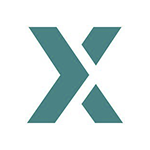Explore the best crypto trading platforms and digital currency exchanges
You can easily find and select top-rated crypto exchanges with our list, expert reviews, 24h volume, deposit methods, total coins, locations, trading/withdrawal fees, and more. We create this unique opportunity to help you make informed investment decisions. Learn more ↓
Cryptocurrency Exchanges & Bitcoin Marketplaces of 2026
Today, in the fastest growing market in the world, there are various ways to buy, sell, or trade digital assets for professional crypto-traders and beginners alike. Making the right choice of services that’s the safest and most secure for your crypto-related activities is becoming a widespread concern – and that’s where we try to help you.
CryptoTotem is an ambitious team of experts and crypto-enthusiasts. Every day we work to create the most comprehensive database in the field of blockchain and crypto industry. Our professional reviews will greatly enhance your skills and provide you with the knowledge to make better decisions.
We compare the ratings of top agencies and analytical services, assessing the independent opinions of popular experts and the mood of the crowd. Our mission is to provide all possible reliable and up-to-date information about each brand in the crypto world.
Frequently Asked Questions
How do crypto exchanges work?
Simply put, crypto exchanges are online platforms where you can buy or sell cryptocurrencies amongst pools of traders and investors. These exchanges serve various other purposes on top of just trading, including storing your fiat currencies/tokens, providing lending services for users to earn interest on their assets, offering promotions and events to spark investments and community building, and more. In a traditional sense, consider a crypto exchange to be the equivalent to your investment account at a bank, where you engage in trading and have a variety of options to select from and invest in; the main difference is that crypto exchanges typically have fewer regulations and require less personal information to create an account.
Are crypto exchanges safe?
For the most part, yes. If you browse the web regarding the security surrounding crypto exchanges, you will see a lot of news regarding cyber attacks and hacks – there have been instances where customers have lost their funds entirely or the exchange reimbursed them for the lost assets. In the early days of crypto (pre-2017) there was much less regulation and security. An example is the famous Mt. Gox case in 2014, the biggest worldwide Bitcoin exchange at the time; they were hacked and 24,000 customers lost their funds.
Nowadays, things have changed, and security is top-of-mind for many exchanges – crypto users are also keeping this at the forefront of their minds when choosing which exchange to use. Several exchanges offer insurance on digital assets that are stored on their platform in the event that there is an external cyber attack. A large amount of them hold customer funds in offline wallets (also known as cold storage) which helps prevent hackers or unauthorized users from gaining access to the exchange’s tokens, due to the fact that only employees from the exchange hold the security keys to the wallets.
Although there are many viable and safer options in regards to exchange, it is always recommended to buy a physical offline wallet (i.e. Trezor) to house your funds in cold storage, as some exchanges have a history of randomly halting trading and shutting down unexpectedly, particularly in volatile market times. With more regulation on the horizon, it is likely that insurance and protection of funds will become mainstream down the road in the crypto space.
What is the best crypto exchange?
This question is always on everyone’s mind, and rightfully so. People have different justifications for using a particular exchange – it could be that they want an exchange with the lowest fees, greatest security/insurance, largest amount of token offerings/trading pairs, high interest rates for lending, etc. The truth is that there are so many different features that each exchange offers, but in terms of the whole picture, there are a select few that we highly recommend because they have truly cemented themselves in the space:
- Binance: the world’s largest cryptocurrency exchange, offering the highest liquidity and one of the largest varieties of token offerings; they also provide high staking/interest rates and some of the lowest fees in the industry.
- Coinbase: a household name in the crypto industry. Although they have some of the highest fees and offer a limited amount of assets, they offer an extremely easy user interface, insurance for tokens held online, and staking.
- Gemini: known mostly for its work with regulators and custodial services, it has garnered a strong user base and continues to grow its name. It is considered the sister to Coinbase, having many of the same qualities and providing users with a simple way to get involved with crypto, especially for beginners.
What is a cryptocurrency spot exchange?
A cryptocurrency spot exchange is one that allows trading to occur in its simplest form, where buyers and sellers can trade crypto assets with each other on a platform. The spot market differentiates from futures/options markets, as the trades happen instantly when respective bid and ask offers are placed. Most retail investors and average traders use a spot exchange to help facilitate their traders.
What is centralized exchange (CEX)?
Centralized exchanges are online trading platforms that are owned by third-party companies that have control and authority over all transactions. Customers using centralized exchanges do not have access to the private keys of their online wallets. In order to make or send transactions, you need to go through the process established/built on the exchange. Most large online exchanges you see today are considered CEXs.
How does a decentralized exchange (DEX) work?
Decentralized exchanges are different from their centralized counterparts in that they use blockchain technology to operate, allowing for users to facilitate transactions on their own without a middleman or permissions from a centralized authority. They do not store customer funds or information, as they only help facilitate the buying and selling of particular digital assets. DEXs are becoming increasingly popular to their centralized counterparts – some examples are Uniswap and 1inch, which have gained a lot of traction over the last few years and have seen a huge bump in overall liquidity.
Hybrid crypto exchanges (HEX)
Hybrid exchanges are a blend of the features provided by CEXs and DEXs, but looking to improve on some of their weaknesses. HEXs are centralized in that they are managed by third-party companies, but aim to give customers more control of their assets and offer decentralized trading opportunities. They keep their customers anonymous and also abide by necessary regulations. In addition, the digital assets are not held in online hot wallets, ensuring greater protection and security.
Brokers
A crypto broker is a centralized exchange that operates legally and complies with all government regulations in regards to allowing their users to buy and sell digital assets. Crypto brokers offer enhanced security, advanced and easy-to-use interfaces, and the ability to transact easily through their platforms. They are typically more appealing to the average retail investor, given that they need to have the necessary licenses and/or documentation to legally operate in their respective countries, enhancing their trustworthiness. The crypto world started in a decentralized nature in regards to exchanges and trading, however we are now seeing a shift to these more regulated exchanges as the space evolves. Some of the most notable examples of crypto brokers are eToro and Coinbase.
What is Automated Market Maker (AMM)?
An AMM is a type of decentralized exchange protocol that runs based on a mathematical formula to determine the prices of digital tokens; there is an algorithm that prices these tokens instead of your typical order book on a regular exchange. On a traditional exchange you would need another trader to either buy your order or sell to you – however, on an AMM, you don’t need another trader to facilitate the transaction, as the smart contract will fill the order for you.
Custodial vs Non-Custodial
There are two different types of crypto wallets – custodial and non-custodial. Custodial wallets are ones where a third-party has control of your private keys (i.e. an online exchange), so you are trusting them to store and allow you to trade/move your funds. Many people opt for a custodial wallet because it eliminates the hassle and risk of losing the private keys. On the other hand, a non-custodial wallet gives you full control of your own private keys (i.e. a physical, offline wallet such as Trezor), and crypto; these are regarded as the most secure option but also present risk because there is the possibility of losing the device or it being stolen.
What is Peer-to-Peer exchanges (P2P)?
Peer-to-peer exchanges are platforms/marketplaces where individuals can trade and exchange crypto directly with one another; traders can resolve and sort out trades on their own without anyone else intervening. P2Ps don’t process any fiat payments or store their users’ cryptos, which limits the amount of regulation that can be placed on them. The popularity of these exchanges continues to thrive, and some examples of notable ones are LocalBitcoins and Paxful. On LocalBitcoins, many individuals have organized agreements to meet and exchange Bitcoin in person with their computers or phones.
What an Over-the-Counter (OTC) market is
OTC crypto markets are ones where a trade happens directly between two different parties, where one of the parties is normally a “desk,” which is a business specializing in dealing with trades in (in this case) cryptocurrencies. In a trade on an OTC market, the two parties agree on the price and then resolve how to transfer the assets on their own. The reason why certain traders use an OTC market is because no one except the two parties facilitating the transaction have any knowledge of the inner details. These markets are typically not in the public limelight and deal with extremely large trading volumes.
What are cryptocurrency derivatives?
A cryptocurrency derivative is a tradeable contract between two or more parties based on the future price of an underlying cryptocurrency token. As the crypto market has garnered more popularity over the years, derivatives trading has increased tremendously – most derivative products are based on Bitcoin or other higher-cap cryptos. Some examples of different types of derivatives trading options are:
- Futures: A contract serving as an agreement between two parties to buy and sell an underlying crypto asset at a certain price at a particular date in the future – many exchanges have dedicated platforms for futures trading.
- Perpetual Futures/Swaps: These are futures contracts, except without an expiration date. Since none of the individuals have to buy or sell, their positions can remain open if their account contains enough margin to cover them.
- Options: These are derivatives instruments that track a particular crypto tokens’ price over time – they differ from futures contracts because you are simply purchasing the right to buy or sell the token at a specified price in the future. The two different options contracts are calls and puts; call options give the trader the right to buy the underlying token at a specific date, whereas put options give the trader the right to sell it.







































